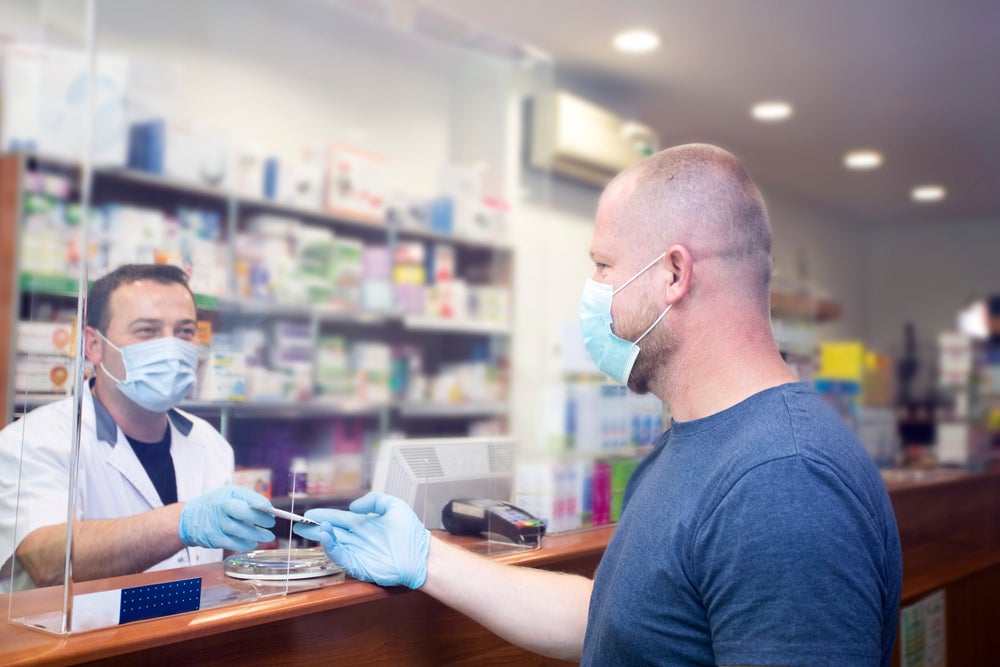
Paxlovid (Pfizer’s COVID-19 Pill): Efficacy, Safety & Treatment
Find our latest coverage on Paxlovid and other Covid-19 antivirals click here, here and here.
On the heels of Merck antiviral molnupiravir’s UK approval, Pfizer has set out to get its own Covid-19 pill, Paxlovid, on the market. This week, the US drugmaker sought emergency use authorisation from the US Food and Drug Administration (FDA) for its novel antiviral candidate in individuals with mild-to-moderate Covid-19, who are at higher risk of hospitalisation or death.

Discover B2B Marketing That Performs
Combine business intelligence and editorial excellence to reach engaged professionals across 36 leading media platforms.
Pfizer has also begun the process of seeking regulatory clearance in other countries including the UK, Australia, New Zealand and South Korea, and plans to file additional applications.
How does Paxlovid work?
Paxlovid is a combination of Pfizer’s investigational antiviral PF-07321332 and a low dose of ritonavir, an antiretroviral medication traditionally used to treat HIV. The treatment disrupts the replication of SARS-CoV-2 in the body by binding to the 3CL-like protease, an enzyme crucial to the virus’ function and reproduction.
According to an interim analysis, Paxlovid reduced the risk of Covid-19-associated hospitalisation or death by 89% in those who received treatment within three days of symptom onset. The drug was found to be so effective – just 1% of patients who received Paxlovid were hospitalised through day 28 compared to 6.7% of placebo participants – that its Phase II/III trial was ended early and regulatory submission to the FDA was filed sooner than expected. Moreover, while 10 deaths were reported on the placebo arm, none occurred among participants who received Paxlovid.
Like molnupiravir, Paxlovid is administered orally, meaning Covid-19 patients can take the drug at home in the early stages of infection. The hope is that new antivirals like those from Merck and Pfizer will allow people with mild or moderate cases of coronavirus to be treated sooner, preventing disease progression and help avoid hospitals from being overwhelmed.

US Tariffs are shifting - will you react or anticipate?
Don’t let policy changes catch you off guard. Stay proactive with real-time data and expert analysis.
By GlobalDataCovid-19 drug competition
Merck’s molnupiravir, the first approved pill for Covid-19, has been touted a potential game-changer ever since studies found it reduced hospitalisation and mortality risk by around 50%. But that doesn’t mean Pfizer’s antiviral offering won’t have the edge in the market.
An interim analysis of molnupiravir’s efficacy is promising, but the dramatic risk reduction reported by Pfizer indicates its pill could also prove a valuable weapon in governments’ armoury against the pandemic.
In addition to being potentially more effective, Paxlovid may encounter less safety questions than its rival antiviral. Some experts have expressed concerns that molnupiravir’s mechanism of action against Covid-19 – mimicking RNA molecules to induce viral mutations– could also introduce harmful mutations within human DNA. Paxlovid, a different type of antiviral known as a protease inhibitor, has shown no signs of “mutagenic DNA interactions”, Pfizer has said.
Both Pfizer and Merck’s pills are most beneficial when administered within five days of symptom onset.
Still, not all antiviral efforts have been successful. A Covid-19 antiviral pill jointly developed by Roche and Atea Pharmaceuticals recently failed to meet its primary endpoint in a Phase II trial, and Atea has since announced the strategic partnership between the companies will be terminated.
It’s not just antivirals that hold promise for the treatment of Covid-19. Drugmakers are also investigating monoclonal antibodies, which bind to specific antigens and instruct the immune system to destroy the virus.
Monoclonal antibody therapies from Eli Lilly, Regeneron and GlaxoSmithKline have been granted US regulatory authorization for the treatment of Covid-19.However, the FDA revoked Lilly’s authorisation for the monotherapy use of bamlanivimab—one of the antibodies in the cocktail with etesevimab—because it was ineffective against emerging SARS-CoV-2 variants.
While all three companies’ antibody treatments have demonstrated good efficacy, they require a one-time intravenous administration, meaning antiviral pills – which can be taken at home –are significantly more convenient.
Who will have access to Paxlovid?
In early November, and ahead of the drug’s approval, the UK purchased 250,000 courses of Paxlovid. The US also has plans to secure a hefty supply and according to news reports, the Biden administration is set to buy 10 million courses of the pills.
Pfizer says it has entered into advance purchase agreements with several countries, including Israel – but with wealthy countries eager to snap up supplies of the most promising Covid-19 treatments, there are concerns that poorer nations will be left behind as they were with coronavirus vaccines.
In efforts to expand global access to Paxlovid, Pfizer has signed an agreement with the United Nations-backed Medicines Patent Pool (MPP) to allow generic manufacturers to provide copies of the drug to 95 low- and middle-income countries. The drugmaker has said the therapy will be offered through a tiered pricing model, which will see high- and upper-middle income nations pay more than lower-income countries, which will be charged a not-for-profit fee.
Despite this, Pfizer’s purchase arrangements could still see some countries left without reliable access to Paxlovid. The company’s deal with the MPP resembles that of Merck’s, signed last month, which appears to leave most of Latin America and Caribbean behind.




